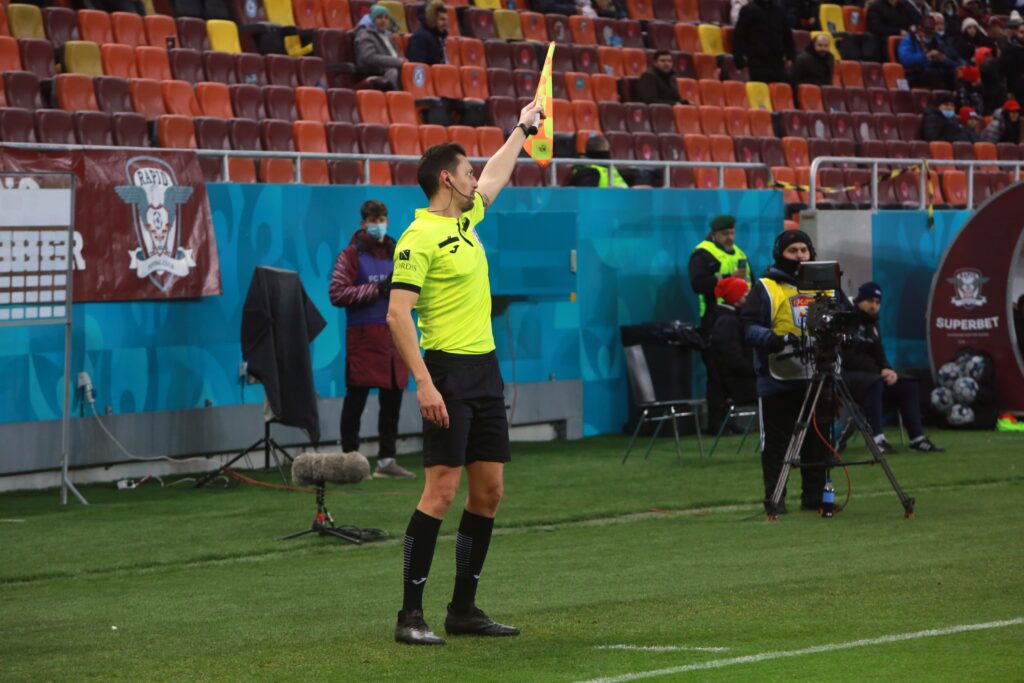Are you a good team member? Do you complain about a lack of refereeing time?
Successful officials make sacrifices. Yet, one of the most challenging sacrifices for some refereeing is accepting their role within the team.
The role of an official can frequently change due to injuries, shake-ups, changes in refereeing style, an appointment secretary’s preferences, or a high level of performance by a new colleague.
Whether you are more often acting as a 4th official or have your appointments significantly reduced, you can have difficulty adjusting to your new role.
After all, you worked so hard to build your skills and hone your refereeing ability. You are talented and were a consistent performer in the past. You officiated a lot better than most of your colleagues in previous seasons.
You feel you deserve more appointments or earned the right to referee. You may even question why a colleagues receives more fixtures than you. You may think your appointments secretary is unfair or has something against you personally.
Not only does a negative attitude hurt your performance, but it also stirs negative energy throughout your team of officials. Negative attitudes hurt the team and worsen your standing in an observer’s eyes.
Anyway, no referee has ever complained their way to the top. So, what is the resolution?
Firstly, even though your role has changed, there are several ways you can still contribute to the team’s success and simultaneously improve your officiating.
1. Learn by watching – You can develop your game and better understand strategy by watching others referee.
2. Push your colleagues – When you push your limits in training, you push your colleagues to become better. This mentality fosters teamwork and cohesion.
3. Hone your skills – Even though you have less officiating time, you can take advantage of the opportunities when training and reading the Laws of The Game to develop your skills through focused repetition.
4. Showcase your abilities – Each game you’re appointed to, you have the opportunity to display your skills, work ethic, and positive mindset, possibly resulting in more refereeing time.
5. Contribute to teamwork – Just as negativity infects a officiating team’s morale, positivity can improve the collective team mindset.
Always keep in mind that a team’s success results from all referees pulling in the same direction towards a common goal.
The Playing Perspective
Basketball shooting guard Nik Stauskas. Stauskas entered the United States National Basketball Association League after being drafted No. 8 overall in the 2014 NBA Draft by the Kings. Stauskas found himself battling for playing minutes and never lived up to his potential as a ‘rookie’.
Stauskas bounced around the league playing for eight different teams, which affected his effort and energy. In 2022, Stauskas contemplated retirement. However, after a 10-day successful stint in the NBA ‘G’ League, the Boston Celtics signed Stauskas to a two-year contract.
Stauskas has since decided to accept his role, contribute wherever he can and maintain a positive attitude.
“I just have a different appreciation now for being in this [situation], having this opportunity. Trying to make the most of it. If I’m not going to play, I’m going to be the first guy waving the towel, pumping everyone else up. For me, that’s growth because that’s something that I wasn’t willing to do just a couple years ago in my first stint in the league.” – Nik Stauskas, Basketball Shooting Guard
Defining and accepting your role within the officiating team keeps your motivation high. You become a valuable team asset when you approach each appointment with a positive mentality.
Tip For Taking Advantage of Your Role on Your Team:
It is easy to complain, but complaining does nothing to improve your circumstances. However, you can contribute to the refereeing team success in many ways.
Instead, work on a mindset to help you and your colleagues by compiling a list of how you can contribute to your team’s success as a leader, a decision maker, or an assistant.
Read your list before training and commit yourself to be a team player.
At The Third Team I work individually and in collaboration with different professionals where I have developed workshops and 1-2-1 sessions associated with Resilience and Mental Toughness Development to help referees. The workshops and 1-2-1 sessions are interactive, where referees are encouraged to open up and share their experiences to help themselves and each other.
Feel free to contact me if you’d like to know more about my workshops or 1-2-1 sessions and how I could help you or your officials.
Best Wishes,

Nathan Sherratt
Referee Educator & Managing Director of The Third Team

Nathan Sherratt
Nathan Sherratt, Referee Educator, Resilience Trainer and Managing Director of The Third Team. A Mental Toughness Practitioner based in County Durham, North East England.

